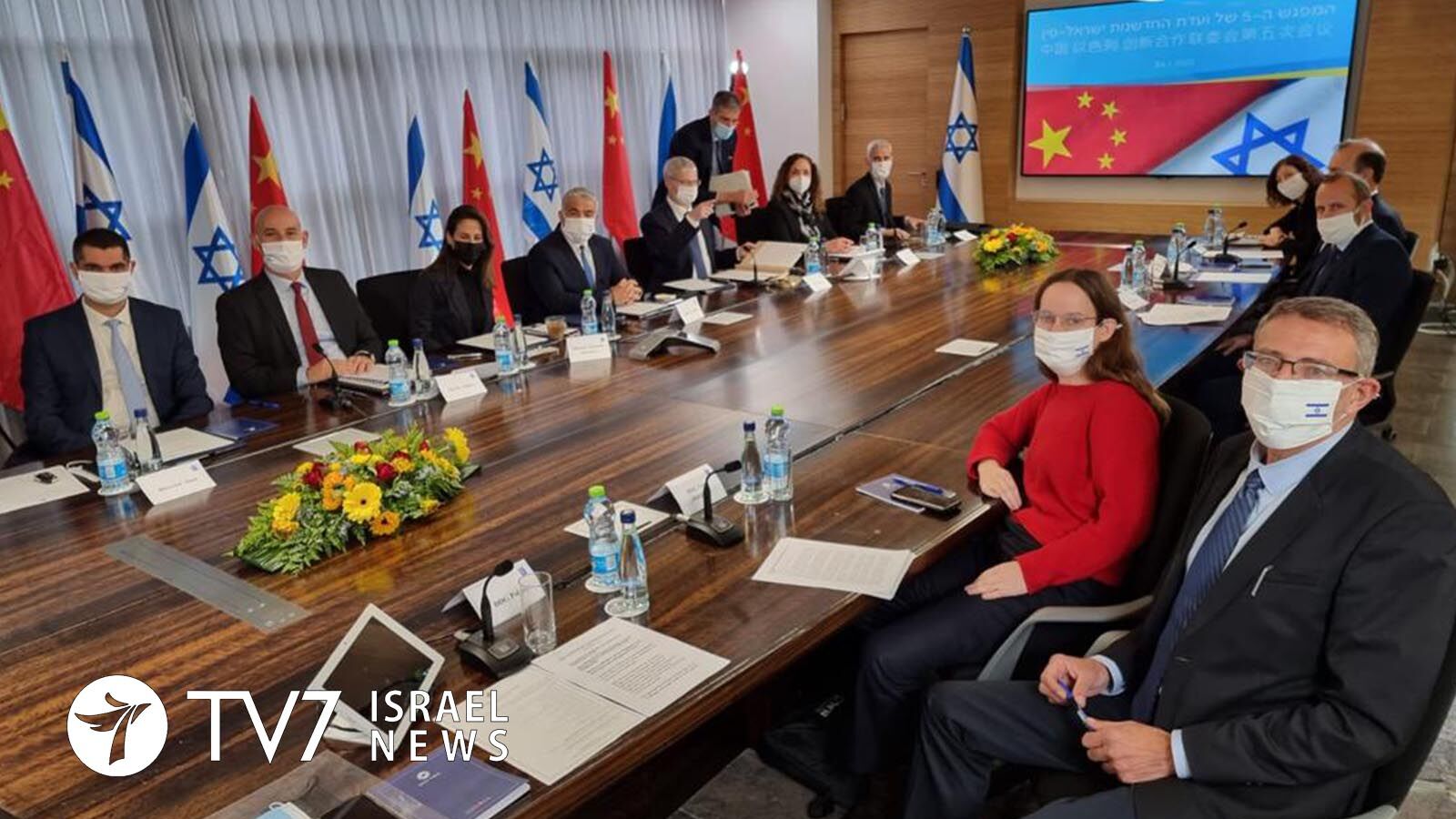Diplomatic relations between Jerusalem and Beijing are “characterized by a continuing political dialogue, close economic and trade relations, and diverse collaborations which link the two peoples,” said the Israeli Foreign Ministry
By Jonathan Hessen and Erin Viner
Senior Israeli and Chinese leaders exchanged congratulations emphasizing the shared past and warm relations which exist between their nations.
Israeli Prime Minister Naftali Bennett and Chinese Premier Li Keqiang communicated felicitations in tribute of the occasion, as did Israeli Foreign Minister Yair Lapid with his Chinese counterpart Wang Yi.
In a message to his Israeli counterpart Isaac Herzog, Chinese President Xi Jinping noted remarkable progress in expanding friendship and bilateral relations. He particularly highlighted an ‘innovative comprehensive partnership that was forged in 2017, which includes exchanges and cooperation in various fields, has yielded fruitful results, bringing tangible benefits to the people of the two countries.’
The China-Israel Joint Committee on Innovation Cooperation convened for the 5th time yesterday “within the framework of events marking 30 years of diplomatic relations between the two countries,” said a statement TV7 obtained from the Israeli Ministry of Foreign Affairs (MFA).
The virtual conference was headed by Foreign Minister Lapid, who is also Israel’s Alternate Premier, and Chinese Vice President Wang Qishan. The sides signed a 3-year plan of action to regulate dialogue and professional cooperation between the governments through 2024, in addition to a series of professional bilateral agreements.
“The Chinese, like Israelis, aren’t afraid of new ideas. There’s a built-in curiosity in the character of our two peoples. Give us a new and exciting idea, and we’ll gather around it, enthusiastically discuss it, and immediately examine its origin and how it can be improved,” Lapid said at the beginning of the discussion.
“In my view, there’s no contradiction between ancient and new. They complete one another. History deals with two things: people and their ideas. The longer your history, the greater the number of ideas which accompany you,” he pointed out, adding, “The Joint Committee on Innovation is not merely a technological venture. It is also the central mechanism for government-to-government cooperation between our countries. This is an important platform which enables the realization of the special framework for relations between our two countries – the Innovative Comprehensive Partnership – which was announced in 2017.”
Other Israeli participants at the event included the Ministers of Innovation, Science, & Technology and Energy, as well as leading representatives from the Innovation Authority, Patent Office, and Ministries of Foreign Affairs, Economy, Agriculture, Environmental Protection, Health and Culture.
The China-Israel Joint Committee on Innovation Cooperation is an Israeli Foreign Ministry initiative that has been working to build a senior government-to-government mechanism between the two countries since 2014.
“The Committee is a comprehensive framework which promotes connections and dialogue between approximately 15 government ministries and government agencies from both sides in order to deepen cooperation between the countries in a wide range of areas, with an emphasis on economic cooperation,” said the statement.
Adding that the 3 decades of diplomatic relations are “characterized by a continuing political dialogue, close economic and trade relations, and diverse collaborations which link the two peoples,” said the Foreign Ministry, also pointing out that China is one of Israel’s most important trading partners anchored by a free trade agreement (FTA) that “is expected to contribute to increasing trade volume” that currently “stands at approximately $18 billion” (almost € 16 million).
There are 5 Israeli diplomatic missions in China, including an Embassy in Beijing with Consulates-General in Shanghai, Guangzhou, Chengdu; with an additional Consulate in Hong Kong.
“The strong connection between the Jewish people and the Chinese people is ancient, beginning with the Jewish community in Kaifeng approximately a thousand years ago, and continuing through to the thriving Jewish communities in Harbin, Tianjin, and Shanghai where thousands of Jews who fled Nazi rule in World War Two found refuge,” said the MFA statement, underscoring that, “The connection is based on mutual appreciation and mutual respect between two peoples rooted in ancient cultures.”
